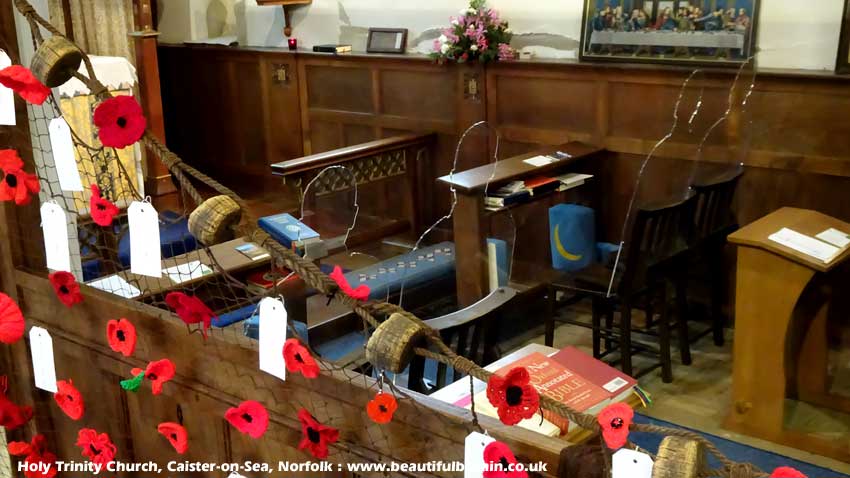
On This Day - 11th November
There But Not There : The acrylic silhouettes (see picture above) are to remember the fallen of the First World War that ended On This Day in 1918. The silhouettes allow communities to take the names of those who made the ultimate sacrifice off the Rolls of Honour and back into the spaces they left behind.
1620 The Mayflower Compact was signed aboard ship in what is now Provincetown Harbour near Cape Cod. It was the first governing document of Plymouth Colony and was written by those who had fled to America in the ship the Mayflower to escape religious persecution from King James VI of Scotland (James I of England). Note:- The Pilgrim Fathers were thwarted in their first attempt to sail to America when they left from Havenside, near Boston, Lincolnshire in September 1607. See ![]() picture of the memorial and a
picture of the memorial and a ![]() close-up picture of the memorial plaque.
close-up picture of the memorial plaque.
1724 The highwayman Joseph Blake, alias Blueskin, was hanged in London. He had attracted attention for attacking the nation's leading policeman and 'Thief Taker' Jonathan Wild with a pocket knife. The policeman was also a successful gang leader and became the most infamous criminal in Britain during the 18th century. The attack by Blake left Wild incapacitated for weeks, and his grip over his criminal empire started to slip during his recuperation. Like Blake, he too was later hanged for his crimes.
1887 Work started on building the Manchester Ship Canal at Eastham, Merseyside. At one time the Manchester end of the canal ended at an area now known as Salford Quays, a residential area with shopping precincts and home to the Lowry Theatre (![]() picture), the Imperial War Museum North (
picture), the Imperial War Museum North (![]() picture) and the TV studios - Media City UK. See
picture) and the TV studios - Media City UK. See ![]() picture.
picture.
1918 At the 11th hour on the 11th day of the 11th month of 1918, the Great War ended; a war that had lasted for 4 years and 97 days. Germany, bereft of manpower, supplies and food, signed an armistice agreement with the Allies. The war left 9 million soldiers dead and more than 21 million wounded, with Germany, Russia, Austria, Hungary, France, and Great Britain each losing nearly a million or more lives. In addition, some 6 million civilians died from disease, starvation, or exposure.
1919 Britain introduced a two minute silence at 11:00 a.m. to remember those who died in World War I.
1921 The first British Legion Poppy Day. See  Remembrance
Day desktop wallpaper.
Remembrance
Day desktop wallpaper.
1946 Stevenage was officially designed as Britain’s first New Town, one of ten which were planned to relieve London’s post-war housing problems.
1953 The BBC television programme Panorama was first broadcast.
1954 Thousands of elderly people took part in a rally in London calling for an increase in their pensions.
1965 The Rhodesian Government, led by Prime Minister Ian Smith, illegally severed its links with the British Crown.
1987 Irises, a painting by Vincent Van Gogh was sold for £27m at Sotheby's, a world record at that time for a work of art.
1992 The Church of England General Synod voted to allow women to be ordained to the priesthood.
1997 Britain's Labour Party admitted to accepting a £1m donation from Formula One boss Bernie Ecclestone, but claimed it would be repaid and that it had nothing to do with the Government's decision to exempt motor racing from the ban on tobacco-related sports sponsorship.
1998 In the first joint engagement of its kind, the Queen and the Irish president, Mary McAleese, unveiled a peace tower in memory of the Irish dead of the First World War.
2011 Sean Quinn, an entrepreneur who was once the richest man in Ireland declared himself bankrupt over debts of £1.7 billion to the former Anglo-Irish Bank. Mr. Quinn ran a multi-billion empire until it collapsed due to massive, secret stock market gambles.
2013 Sean Conway, 32, made history by completing a marathon swim from Land's End to John O'Groats. He left Cornwall on 30th June, swimming along the west coast to the most northerly point of the UK mainland. He swam around 10 miles a day, slept on a yacht or in accommodation onshore and raised thousands of pounds for the War Child charity in the process.
2013 Hundreds of people attended the funeral of 99 year old Harold Jellicoe Percival (from Lytham St. Annes), a war veteran they never knew who died with no close friends or relatives around him. Veterans' groups and other military supporters campaigned, including via Twitter and Facebook, to acknowledge Mr. Percival's career as ground crew with the RAF's Bomber Command. He was also a distant relative of former Prime Minister Spencer Perceval, the only British Prime Minister to be assassinated - (1812).
